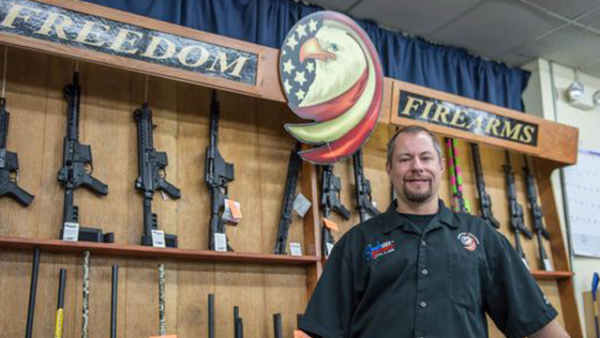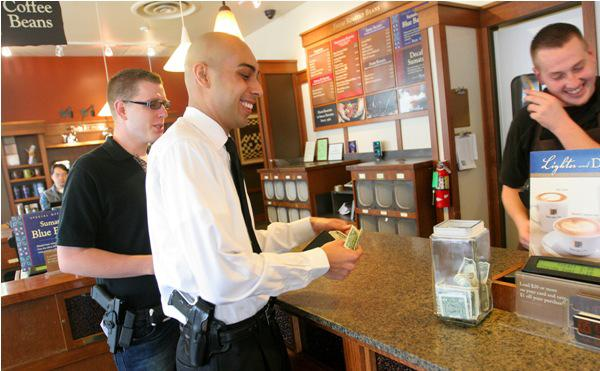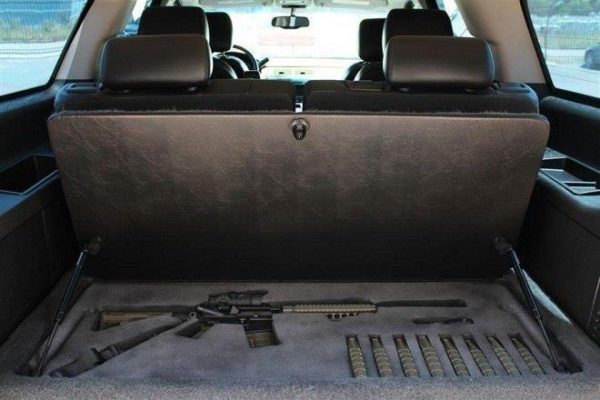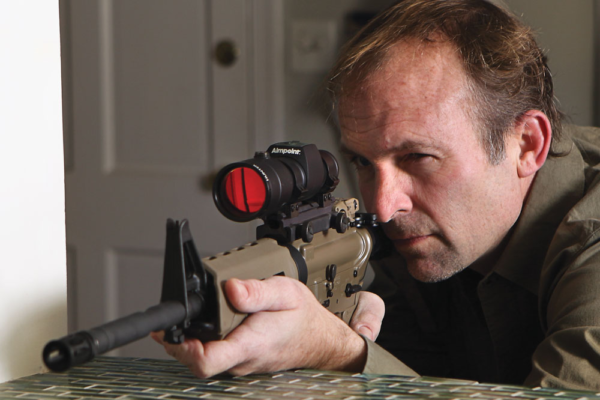
Buying a Handgun
First, the bad news. The handgun laws in Michigan are some of the more restrictive ones in the country. It’s certainly not the worst, but take a look at our guides on gun laws of states like Arizona or Alaska and you’ll see what I mean. But the good news is that it’s not impossible to buy a handgun! If you meet certain requirements, of course. There are two situations where you would normally buy a handgun: from your local gun store, or through a private sale. In both situations, though, you are effectively registering your handgun when you make the purchase, either through the record of the handgun sale when you buy at the gun store, or with a license to purchase you’ll have to use when buying from a private seller.Buying from the Store
While no permit is required to buy a handgun from your local gun dealer, to buy a handgun, you must:- Be 21 or older;
- Provide state ID;
- Have the licensed firearms dealer perform a background check; and
- Complete a pistol sales record, containing the dealer’s FFL number.
Private Sales
Buying from a private seller has some benefits, but there are also more hoops to jump through to do so. To buy a handgun from a private seller, you must:- Be at least 18 years old; and
- Have a License to Purchase.
There’s More!
Even after all that hassle, you may still not be allowed to buy a handgun! There are certain conditions that prevent you from owning a firearm. You are prohibited from owning a firearm if you:- Have been convicted of a crime punishable by imprisonment for over a year;
- Are a fugitive from justice;
- Illegally abuse controlled substances;
- Have been adjudicated as mentally defective of incompetent, or have been committed to a mental institution;
- Are an illegal resident of the United States;
- Are a former US citizen who has renounced his citizenship;
- Were dishonorably discharged from the US Armed Forces;
- Are subject to a restraining order;
- Were convicted of a misdemeanor crime of domestic violence.

But There’s Good News
For those of you who collect antique handguns, the rules on purchasing firearms don’t apply! As long as the handgun is for display purposes and not made to use modern ammo or is permanently deactivated, you can buy and sell the handgun just like any item you’d buy from your local supermarket. Of course, you’ll need to make sure the handgun you want to buy actually qualifies as an “antique firearm”, or you will have to go through the standard handgun purchasing dance. An antique firearm is:- A firearm not designed (or redesigned) to use rimfire or centerfire ignition with fixed ammo and was manufactured before 1899; or
- A firearm using fixed ammo and was manufactured before 1899, and ammo for the gun is no longer made in the US.
Don’t Forget About Long Guns!
With all of those laws on how to buy handguns, the laws for buying long guns seems a lot simpler. To buy a long gun, you must:- Be 18 or older;
- Provide ID; and
- Have a background check done by a licensed firearms dealer.
Where You Can Carry
After jumping through all those hoops to get a handgun, you probably want to show it off! Luckily, open carry is perfectly legal without a permit, as long as you are 18 or older (and allowed to own the handgun, of course!). To be able to carry concealed, however, you will need to have a Michigan CCW permit. The steps for getting one are a little involved, so we’ve got a guide dedicated to all the info you’ll need on getting a CCW permit. If you’re interested in getting a permit, or just want to know what’s involved, be sure to hop over and take a look! Even without a CCW permit though, you can still carry concealed in your own house or workplace, and on your own land. Of course, if you don’t run your own business, you would need to check with your boss on the office policy for carrying concealed.
Places Off Limits
Although you can open carry without a permit and carry concealed with a CCW permit, there are still places where firearms are not allowed. You cannot carry a firearm in a:- Financial institution;
- Church or other house of worship;
- Courthouse;
- School;
- Theater;
- Sports arena;
- Day care center; or
- Restaurant with an alcohol license.
Ride Along
If you are on your way to the range, or going somewhere else with your gun, there are certain laws to watch out for in terms of how you need to store your gun.For Handguns
If you are transporting a handgun, the handgun must:- Be unloaded in a container, in the trunk; or
- In a container and not readily available (but only if the car doesn’t have a trunk).
Long Gun Storage
Transporting long guns is slightly less annoying, but actually more confusing, because of the way the requirements are made. To transport a long gun, it must first be unloaded. In addition, the gun must be:- Broken down;
- Enclosed in a case;
- Carried in the trunk of the car; or
- Inaccessible from the inside of the car.

But There’s More
Pellet guns are considered firearms in Michigan. This means everything that applies to standard guns applies to pellet guns, from the purchasing requirements to the CCW permit if you want to carry it concealed. If that wasn’t enough, if your pellet gun does not have a serial number, you are required to take it to the State Police so they can stamp one onto it.BB Guns Count, Too!
If you thought you could get around the pellet gun laws by getting a BB gun, think again! You must be 18 or older in order to have or use a BB gun outside of your yard, unless you are supervised by someone over 18.So when can you actually use your gun?
Aside from a day at the range, you’ll probably also want to use your gun if you or your family are ever faced with a home invasion or robbery.Protecting Your Castle
Michigan has adopted what is known as the “Castle Doctrine”, which basically allows you to defend yourself when you are in your home, or “castle”. You can use deadly force if you honestly and reasonably believe imminent death, sexual assault, or great bodily harm is about to happen to you or someone else, due to a person who:- Is breaking into or has broken into your house or place of business; or
- Is trying to kidnap someone from a home, place of business, or vehicle.







